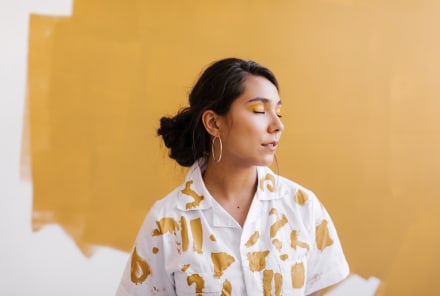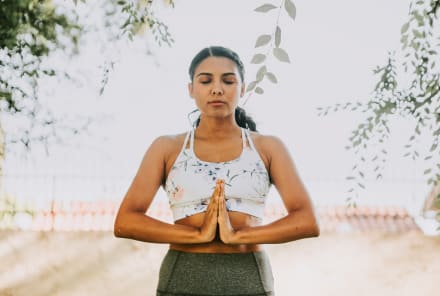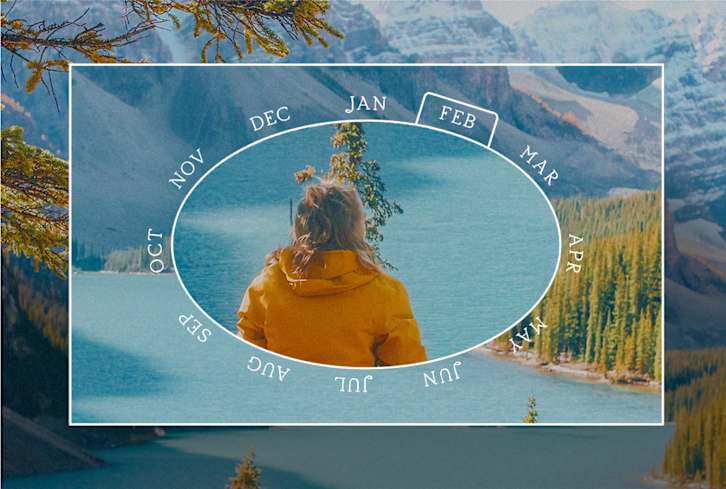Advertisement
5 Yoga Poses That Build Total-Body Strength
Yoga is not usually the first thing that comes to mind when we think about strength training. While hitting the weights is an effective way to bulk up, total-body strength involves more than six-pack abs. Yoga uses both isometric and eccentric contractions to simultaneously strengthen a muscle as it stretches, creating functional strength that assists us in everyday activities like bending over, lifting, walking, sitting down and standing up. Yoga relies on your own body as the "weight" and targets smaller stabilizing muscles that are often overlooked in traditional weight training. The next time you reach for your gym bag, think about bringing your yoga mat with you.
Chair Pose (Utkatasana)
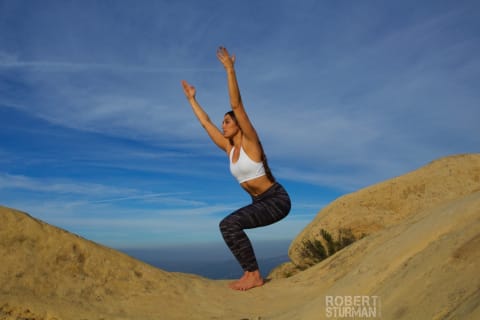
Chair Pose creates powerful strength in the legs by contracting the hip flexors, glutes, adductors and quadriceps. It also builds strength in the trunk by engaging the rectus abdominus along the front body and the erector spinae muscles along the back.
To enter Chair Pose, start standing with your feet together. On an inhalation, sit deeply back as if sitting in a chair and reach your arms up toward the sky. Feel your shins moving back as the weight shifts away from the toes, which will prevent undue stress on the knees.
Hold for 5 breaths, then release and come back to a standing position.
Boat Pose (Navasana)
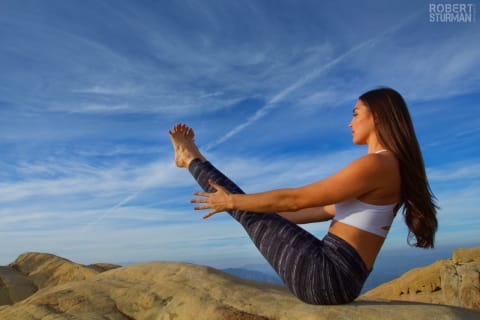
Boat Pose targets the rectus abdominus (six-pack muscles) of the core, while strengthening the hip flexors, quadriceps and erector spinae muscles of the back.
Enter Boat Pose from a seated position. Lengthen your spine and lift through your sternum. Bend your knees, lift your feet off the floor, and engage the thigh muscles to straighten the legs out in front of you. Reach the arms forward and soften the shoulders away from the ears.
Hold for 5-8 breaths.
Crescent Lunge (Anjaneyasana)
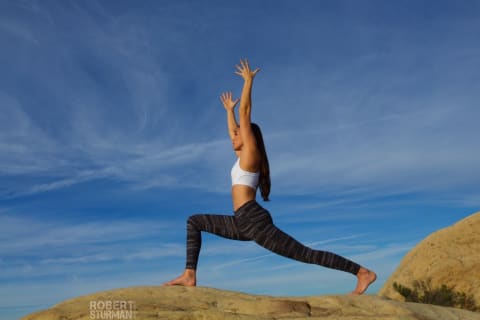
Crescent Lunge strengthens the lower limbs, including the quadriceps and glutes, and engages the erector spinae muscles along the back. As a bonus, Crescent Lunge helps to stretch out the hip flexors of the back leg while the front leg is contracting.
To enter Crescent Lunge, start with your feet together and take a big step back into a lunge. Make sure your front foot tracks straight ahead and your knee aligns over your ankle. Position your hips squarely forward and raise your arms overhead. Draw your front ribs in to engage the core.
Hold for 5 breaths.
Forearm Plank (Makara Adho Mukha Svanasana)
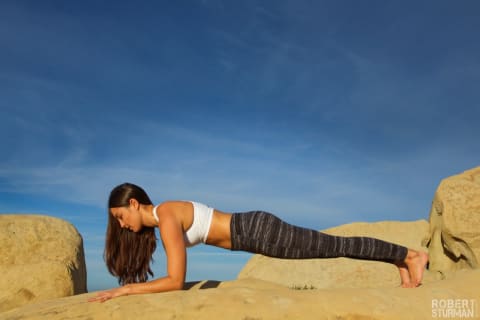
Unlike crunches, Forearm Plank is a full-body exercise that works the entire core group, including the erector spinae muscles (located along the spine on the back), rectus abdominus (six-pack muscles), and transverse abdominus (one of the deepest layers of core musculature; that helps stabilize the spine). Forearm Plank also sculpts the shoulders and engages the chest, glutes, thighs and calves.
From tabletop position, come down onto your forearms. Place your hands shoulder-width apart, keeping the elbows in line with the wrists. Step one foot back at a time to Forearm Plank.
Push actively down through your forearms as you draw your front ribs in. Keep your hips low without collapsing in your lower back. Lengthen your tailbone toward your heels. To increase the contraction, visualize trying to draw your toes forward toward your elbows and your elbows back toward your toes.
Start off with 5-8 breaths and eventually increase up to 1 minute.
Bridge Pose (Setu Bandha Sarvangasana)
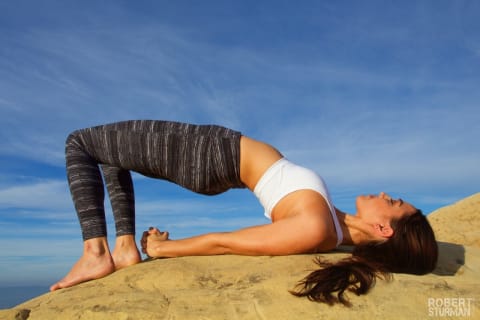
Bridge Pose strengthens the hip extensors, including the hamstrings, glutes and adductors, and engages the core to stabilize the spine as it moves into extension.
Start on your back with feet hip-width apart. On an inhalation, slowly begin to lift your hips toward the sky. Create a slight posterior tilt in the pelvis by reaching your tailbone toward the back of your knees.
Clasp your hands underneath you and press down firmly into the arms as the hips lift. Engage your adductors by visualizing yourself squeezing a block between your inner thighs. Feel your shoulder blades firming against your back to open the chest.
Hold for 5-8 breaths. Release on an exhalation.
Gallery courtesy of Robert Sturman Studio




